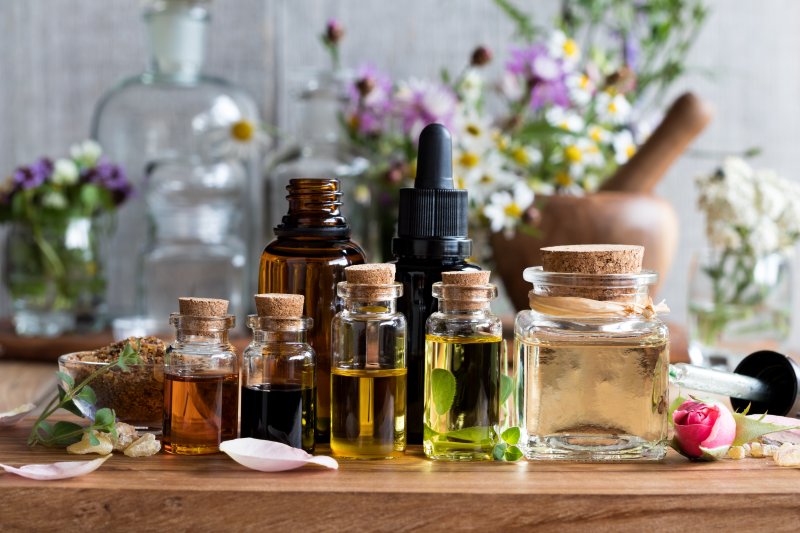
Millions of Americans suffer from obstructive sleep apnea (OSA). The disorder causes frequent pauses in breathing while you sleep. Although one interruption may not be a problem on its own, multiple can prevent you from getting the rest your mind and body needs. Luckily, there’s a way you can alleviate your symptoms. Aside from seeking professional treatment, essential oils have proven to be an excellent way to treat sleep apnea. Read on as we explain how they help with the condition and share which ones are ideal for better sleep.
How Do Essential Oils Connect to Sleep Apnea?
Essential oils are an all-natural remedy that have a plethora of health benefits. Although they’re primarily used for aromatherapy, they’re also an effective way to treat sleep disorders. Certain ones (like lavender) contain chemical compounds that ease insomnia symptoms and anxiety, allowing the body to get proper rest. Others are successful in easing breathing and nerves, helping the body relax in preparation for a good night’s sleep.
The Best Essential Oils for Sleep Apnea
Several different essential oils have proven successful at relieving sleep apnea symptoms and helping in the treatment process. Let’s take a look at how the following ones relieve symptoms of the condition:
Lavender
Lavender has many therapeutic benefits, making it one of the most popular essential oils on the market. It’s a relaxant that helps calm and soothe, which is why it’s often used to treat anxiety, depression, and sleep disorders. Additionally, lavender can help clear airways in the throat and sinuses. Before you go to bed, apply a few drops on your neck, chest, and feet. You can also diffuse it and inhale the aroma to help you sleep easier.
Peppermint
Peppermint is a known anti-inflammatory, popularly used for easing irritation of the nasal passages. If you’re struggling to sleep because of excessive congestion, this oil can ease your symptoms and help you get a better night’s sleep. Apply a drop below each nostril before bed to reduce congestion and ease sleep apnea symptoms.
Eucalyptus
Like peppermint, eucalyptus is another anti-inflammatory oil. It’s commonly used to treat colds and the flu because it can clear mucus from the sinuses, ease congestion, and relieve sinus irritation. Since it’s incredibly strong, you’ll have to dilute it in a carrier oil (i.e., coconut or canola oil) before use. You can apply it topically before bed, diffuse it, or add a few drops to a bath and inhale it through steam.
Thyme
Thyme oil has anti-aging, anti-fungal, antimicrobial, and anti-parasitic properties. It’s extensively used in the treatment of respiratory infections and other conditions. Not only can it help clear pathways to treat OSA, but it can soothe the cerebral cortex of the brain as well, aiding in treating central sleep apnea (CSA) as well.
Essential oils are a safe, convenient, and natural way to treat sleep apnea. However, you should still consult with a specialist to help you determine the best treatment plan for your needs. With their help, you’ll be getting a good night’s sleep in no time!
About the Practice
At Downtown Denver Sleep Solutions, we help patients find relief from their sleepless nights. Our team will always go the extra mile to ensure you receive the quality treatment you deserve. If you have any questions about using essential oils to treat your sleep apnea, we’re more than happy to answer them for you. Visit our website or call (303) 377-5337 to reach a member of our team.